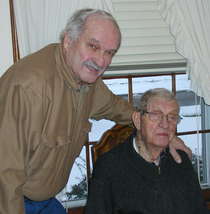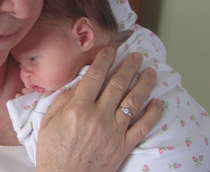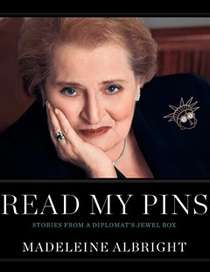 Solar engineer at the Barefoot College For I was hungry and you gave me food; I was thirsty and you gave me drink; I was a stranger and you made me welcome; naked and you clothed me, sick and you visited me, in prison and you came to see me. Then the virtuous will say to him in reply, Lord, when did we see you hungry and feed you; or thirsty and give you drink? When did we see you a stranger and make you welcome; naked and clothe you; sick or in prison and go to see you? And the King will answer, I tell you solemnly, in so far as you did this to one of the least of these brothers of mine, you did it to me. MT 25
Solar engineer at the Barefoot College For I was hungry and you gave me food; I was thirsty and you gave me drink; I was a stranger and you made me welcome; naked and you clothed me, sick and you visited me, in prison and you came to see me. Then the virtuous will say to him in reply, Lord, when did we see you hungry and feed you; or thirsty and give you drink? When did we see you a stranger and make you welcome; naked and clothe you; sick or in prison and go to see you? And the King will answer, I tell you solemnly, in so far as you did this to one of the least of these brothers of mine, you did it to me. MT 25
…… …… …… …… …… …… …… …… …… …… …… …… …… …… …… …… …… ……
Recognise to whom you owe the fact that you exist, that you breathe, that you understand, that you are wise, and, above all, that you know God and hope for the kingdom of heaven and the vision of glory, now darkly as in a mirror but then with greater fullness and purity. You have been made a child of God, co-heir with Christ. Where did you get all this, and from whom?
Let me turn to what is of less importance: the visible world around us. What benefactor has enabled you to look out upon the beauty of the sky, the sun in its course, the circle of the moon, the countless number of stars, with the harmony and order that are theirs, like the music of a harp? Who has blessed you with rain, with the art of husbandry, with different kinds of food, with the arts, with houses, with laws, with states, with a life of humanity and culture, with friendship and the easy familiarity of kinship?…Brethren and friends, let us never allow ourselves to misuse what has been given us by Gods gift. If we do, we shall hear Saint Peter say: Be ashamed of yourselves for holding on to what belongs to someone else. Resolve to imitate Gods justice, and no one will be poor. Let us not labour to heap up and hoard riches while others remain in need. If we do, the prophet Amos will speak out against us with sharp and threatening words: Come now, you that say: When will the new moon be over, so that we may start selling? When will the sabbath be over, so that we may start opening our treasures?
Let us put into practice the supreme and primary law of God. He sends down rain on just and sinful alike, and causes the sun to rise on all without distinction. To all earths creatures he has given the broad earth, the springs, the rivers and the forests. He has given the air to the birds, and the waters to those who live in the water. He has given abundantly to all the basic needs of life, not as a private possession, not restricted by law, not divided by boundaries, but as common to all, amply and in rich measure. His gifts are not deficient in any way, because he wanted to give equality of blessing to equality of worth, and to show the abundance of his generosity. Saint Gregory Nazianzen
My daughter introduced me to the Barefoot College, an amazing place and concept. No MA’s or PhD’s here. No diploma’s. People teaching people skills to share with their community, and not simple skills. Barefoot College “graduates” are solar engineers, architects, and dentists, to name but a few. I encourage you to click on the link and learn more about it.
Today’s gospel and the reading from Morning Prayer remind us of the necessity of living not for ourselves but for others; of not hoarding wealth, but being generous as God has been generous with us.In serving the least among us, we serve God. In seeing our gifts, the earth, and all we have been afforded by accident of birth (education, privilege, sustance etc) as given to be offered to others. We help bring peace to the world, as one of my daughters reminded me this morning, by first being at peace with oneself. That enables us to be at peace with others, to respond to others with compassion and openness. Step at a time, the circle of peace extends further and further out into the world.
That is what Barefoot College does. The founder, Bunker Roy, was the recipient of a prestigious education in India, poised for high ranking jobs in government or industry. Instead, changed by time spent working digging wells in a poor village, he put his education and expertise to work creating educational opportunities for the poorest of the world. He was at peace with himself, able to withstand objections from family and friends. He knew who he was. He knew what he had been given. And he gave it back.
St. Gregory says there are no natural boundaries on this earth. What we have are not private possessions to be protected, but the property of all.
Something to consider when we choose almsgiving as a Lenten discipline. How much more we can give than money. How are we called to stay with the poor, to give away our gifts in the pursuit of peace? Are we at peace with ourselves? Time resting in God, time in prayer, will help us discover both.
 I lift up my eyes to the mountains:
I lift up my eyes to the mountains: Wall transformation chapel guest house St. John’s Abbey, Collegeville, MN PHOTO: Mary van Balen “I have set before you life and death, the blessing and the curse. Choose life, then, that you and your descendants may live, by loving the Lord, your God, heeding his voice, and holding fast to him. For that will mean life for you, a long life for you to live on the landthat the Lord swore he would give to your fathers Abraham, Isaac and Jacob.” Dt 30, 19-20
Wall transformation chapel guest house St. John’s Abbey, Collegeville, MN PHOTO: Mary van Balen “I have set before you life and death, the blessing and the curse. Choose life, then, that you and your descendants may live, by loving the Lord, your God, heeding his voice, and holding fast to him. For that will mean life for you, a long life for you to live on the landthat the Lord swore he would give to your fathers Abraham, Isaac and Jacob.” Dt 30, 19-20 PHOTO: Mary van Balen “Even now, says the Lord, turn to me with your whole heart, with fasting, and weeping, and mourning. Rend your hearts, not your garments, and turn to the Lord, your God. For God is great and merciful, slow to anger, rich in kindness, and relenting in punishments…” Joel
PHOTO: Mary van Balen “Even now, says the Lord, turn to me with your whole heart, with fasting, and weeping, and mourning. Rend your hearts, not your garments, and turn to the Lord, your God. For God is great and merciful, slow to anger, rich in kindness, and relenting in punishments…” Joel
 PHOTO: Mary van Balen (First appeared in The Catholic Times, February 19, 2012 ©2012 Mary van Balen)
PHOTO: Mary van Balen (First appeared in The Catholic Times, February 19, 2012 ©2012 Mary van Balen) My brothers, sisters, and most of our cousins came to the funeral home to remember Adrian and share our stories. Afterward, we gathered at a local park shelter house to share food, laughter, and more stories. Death provided an opportunity for us to reconnect and to celebrate not only Adrians life, but also the lives of family and friends that were intertwined with his.
My brothers, sisters, and most of our cousins came to the funeral home to remember Adrian and share our stories. Afterward, we gathered at a local park shelter house to share food, laughter, and more stories. Death provided an opportunity for us to reconnect and to celebrate not only Adrians life, but also the lives of family and friends that were intertwined with his. Liturgically, we are approaching Lent, when we celebrate the Paschal Mystery of Christs birth, death, and resurrection. This is the ultimate understanding of death leading to new life. Jesus was born lived his life, and in the end, was murdered by humanity that could not accept the challenge of love and compassion he proclaimed.
Liturgically, we are approaching Lent, when we celebrate the Paschal Mystery of Christs birth, death, and resurrection. This is the ultimate understanding of death leading to new life. Jesus was born lived his life, and in the end, was murdered by humanity that could not accept the challenge of love and compassion he proclaimed.
 PHOTO: Jennifer Holt While in Pittsburgh visiting the Carnegie Museum of Natural History, I enjoyed the exhibit,
PHOTO: Jennifer Holt While in Pittsburgh visiting the Carnegie Museum of Natural History, I enjoyed the exhibit,  Now, when I want to remember that I am but a small part of an infinitely large story, I wear them. When I want to be reminded of the wonder of creation and the One who put it in motion, I wear them. When I feel like celebrating life and its mysteries, reverencing what I cannot understand but what pours grace upon me, I wear them.
Now, when I want to remember that I am but a small part of an infinitely large story, I wear them. When I want to be reminded of the wonder of creation and the One who put it in motion, I wear them. When I feel like celebrating life and its mysteries, reverencing what I cannot understand but what pours grace upon me, I wear them. President Obama at the National Prayer Breakfast “And it’s a chance to step back for a moment, for us to come together as brothers and sisters and seek God’s face together. At a time when it’s easy to lose ourselves in the rush and clamor of our own lives, or get caught up in the noise and rancor that too often passes as politics today, these moments of prayer slow us down. They humble us. They remind us that no matter how much responsibility we have, how fancy our titles, how much power we think we hold, we are imperfect vessels. We can all benefit from turning to our Creator, listening to Him. Avoiding phony religiosity, listening to Him.” from
President Obama at the National Prayer Breakfast “And it’s a chance to step back for a moment, for us to come together as brothers and sisters and seek God’s face together. At a time when it’s easy to lose ourselves in the rush and clamor of our own lives, or get caught up in the noise and rancor that too often passes as politics today, these moments of prayer slow us down. They humble us. They remind us that no matter how much responsibility we have, how fancy our titles, how much power we think we hold, we are imperfect vessels. We can all benefit from turning to our Creator, listening to Him. Avoiding phony religiosity, listening to Him.” from  Saint Thomas Aquinas 1225 – 1274 Saint Thomas Aquinas was educated by Benedictines but eventually chose to join the Dominican order, much to his family’s dismay. He continued his education in Paris and Cologne under the tutelage of Albert the Great. During this time, the writings of Aristotle had been rediscovered and were causing ferment in the Christian world of philosophy and theology. Why would a follower of Christ have any interest in the work of an ancient pagan philosopher? Did Aristotle’s writings threaten the Church and its mission to spread the word of God?
Saint Thomas Aquinas 1225 – 1274 Saint Thomas Aquinas was educated by Benedictines but eventually chose to join the Dominican order, much to his family’s dismay. He continued his education in Paris and Cologne under the tutelage of Albert the Great. During this time, the writings of Aristotle had been rediscovered and were causing ferment in the Christian world of philosophy and theology. Why would a follower of Christ have any interest in the work of an ancient pagan philosopher? Did Aristotle’s writings threaten the Church and its mission to spread the word of God? PHOTO: Mary van Balen
PHOTO: Mary van Balen  PhOTO: Mary van Balen This winter has been mild, giving us some almost balmy sunny days. One morning the light coming in my bedroom window was so strong that I grouped plants from around the room onto one dresser so they could benefit from the rays. I sat on my bed and looked at them, enjoying the shine on their leaves and imagining the roots stretching and moving around in the warm soil.
PhOTO: Mary van Balen This winter has been mild, giving us some almost balmy sunny days. One morning the light coming in my bedroom window was so strong that I grouped plants from around the room onto one dresser so they could benefit from the rays. I sat on my bed and looked at them, enjoying the shine on their leaves and imagining the roots stretching and moving around in the warm soil.